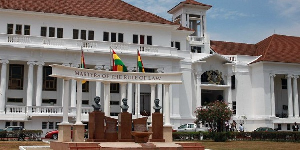Many parts of the country have been severely hit by floods that have claimed lives and destroyed crops.
The heavy rains have ravaged settlements and displaced thousands, leaving businesses paralyzed.
The major water bodies, including lakes Victoria (in the central region), Albert (western) and Kyoga (eastern), and several rivers, have spilled their excess water into the surrounding areas, displacing thousands of people.
Last week, at least 400 families were displaced and their property destroyed as a result of rising water levels in Lake Albert on the Ntoroko District side.
So far, five people have died in Kamwenge and Isingiro districts as a result of the floods.
Environmental experts have, however, weighed in on the causes of the floods and offered solutions on what ought to be done to restrain them.
The activists single out degradation of the catchments, especially around mountain slopes and river banks as the major causes of the floods.
Western region
The western region National Environmental Management Authority (Nema) coordinator, Mr Jeconious Musingwire, in an interview with Daily Monitor on Monday, attributed the current floods to environmental degradation.
"We are currently receiving more rainfall in the hilly and mountainous areas than in the lower lands. In the hilly areas, land has been poorly managed," he observed.
He explained that the steep slopes are above 60 degrees, making it unfavourable for farming.
"Whenever you attempt to cultivate on the steep slopes, there will be surface runoffs, especially during these heavy rains because of cultivation. When it rains, the bare steep slopes cannot retain the runoff and water goes into the gentle slopes, where it cannot be retained because of poor agricultural practices. It is never retained in the lower land too because they used to be occupied by wetlands, and those wetlands have been degraded," he explained.
He reasoned that since the wetlands no longer serve their natural purpose due to degradation, water, which is always loaded with soil, empties into the water bodies.
"The sedimentation and loading of the soils from the poorly managed catchments leads to shallowness of the lakes, thereby spilling the excess water," Mr Musingwire said, adding: "In fact, the recent floating island on Lake Victoria is as a result of soft soils being cut off from the banks due to encroachment."
The rising water levels have been gradual since October last year, according to a May 1 statement by the Minister of Water and Environment, Mr Sam Cheptoris.
The same concern was echoed by the Kabale District natural resources officer, Mr Rogers Akatwijuka, who blamed the occurrence of floods on the poor farming practices in the hilly areas such as Kigezi sub-region.
Regarding the rising water levels around Lake Albert and bursting of the banks of River Semuliki, the Ntoroko District environment officer, Mr Herbert Kamuhanda, explained that rivers Kirumya, Humya, Tokwe, Nyaruru, Rugo, Ngite, Nyahuka, Sundira, Ndugutu and Lamia that connect to River Semuliki, burst their banks due to the free flow of water on the mountain slopes as a result of poor agricultural practices.
"Poor human activity on the hill slopes in Bundibugyo District and population pressure are responsible for the floods," Kamuhanda said, adding, "Uncontrolled human activities and the glaciers on Mount Rwenzori are melting more rapidly due to climate change, thereby releasing more water to the streams that feed River Semuliki."
In the central region, the Masaka District environmental officer, Ms Rose Nakyejwe, attributed the current floods to people building in protected zones around the lakes.
She said they have always warned people against building too close to the lakes to avoid such incidents but they have not been taking them serious.
Impact on fishing
According to Mr Sam Bakaki, the Kamuli District environment officer, Lake Kyoga is going to feel the impact of Lake Victoria overflow since water is being released to ease the Lake Victoria tension.
"Since Lake Victoria feeds into Lake Kyoga and because of the climate change effect, all people around the protected zones have been advised to evacuate. Already, most gardens have been destroyed, the ferry cannot dock at Mbulamuti and the fish is migrating," Mr Bakaki said.
He added that the fishing communities are the most affected as fish cannot stay in deeper waters, except Nile Perch, while the tilapia migrates to the shoreline and the fishermen cannot track it.
Mr Bakaki also said the fishing grounds and beaches in Namasagali, Bukungu, Lyingo and the Teso side of Lake Kyoga have been submerged, and the only solution is evacuation.
The Nema director, Dr Tom Okurut, explained that because of the increased rainfall and inflow of rivers, the outlets which would have been evaporated, are now low, making the water levels in the lakes to rise.
"The water level in a lake is determined and controlled by rainfall and evaporation, and the inflow from rivers. Now that the inflow is four times higher than normal, this forces a triple release of water through the dam; so expect Lake Kyoga to burst its banks," Mr Okurut warned.
He added that because of overflow in River Nile, it cannot allow small rivers such as Mpologoma and Agu to pour into it, thereby forcing water to backflow due to the rising water levels.
Government has often raised a red flag about the rapid rising water levels in the lakes and rivers, urging people who have encroached on these water bodies to vacate immediately to avert calamity.
The Uganda National Meteorology Authority, in its "seasonal rainfall outlook for March to May 2020," warned that there would be an overall increased likelihood of near normal to above normal (wetter than average) rainfall in several parts of the country.
"Sometimes we disseminate weather and risk disaster factors as forecasts but people do not take these serious," Mr Jeconious Musingwire, the western region Nema coordinator, said.
Africa News of Wednesday, 6 May 2020
Source: allafrica.com













